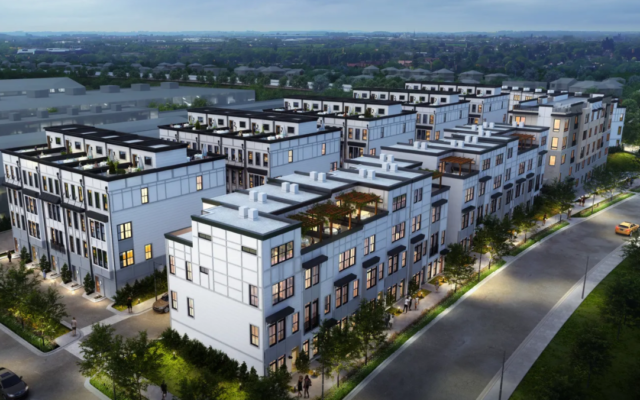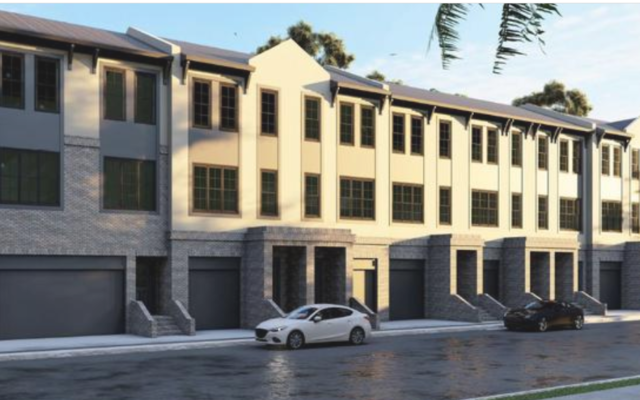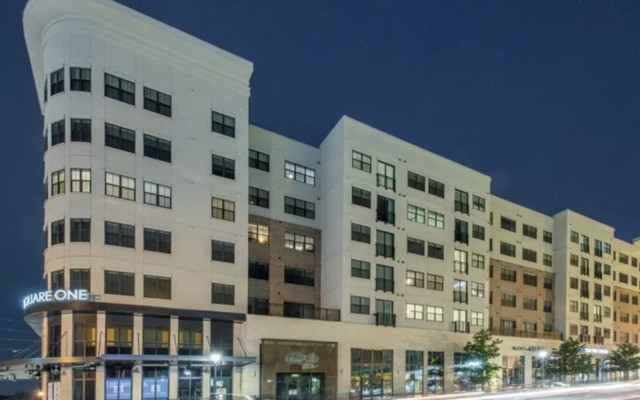Real Estate Developers Pivot to Build-to-Rent
Big time investors are rushing into building large developments of new single family homes for rent for those priced out of the home ownership market.

When Kaplan Residential sold its high-profile apartment development in the heart of Sandy Springs in July 2021, it didn’t invest in another property just like it. Instead, the Atlanta developer pocketed $59.2 million for the 203 apartments and 10,000 square feet of commercial space in the Square One building at the corner of Roswell Road and Hammond Drive.
Last year, Kaplan also sold off Generation Atlanta, a 330-unit apartment complex downtown, to Canadian investors, for $83 million. But, instead of investing its share of the profits into another apartment building or mixed-use development, it decided to build single-family homes that it would rent rather than sell.
The developer now has plans to put $300 million into several build-to-rent housing communities that are already in the works. Among its publicly announced projects are a community of 239 single-family units to be built in a development called Avondale Generation East, a single-family active adult community in Dallas, Ga., and 183 rental townhomes in Cartersville, less than an hour from Atlanta.
According to Nathan Kaplan, a partner in the firm, all of the company’s available funds are being channeled into the build-for-rent single-family home market. The same is true for GTIS Partners, a real estate investment firm that picked up 4,700 single-family homes in nine cities, including Atlanta, in the years following the 2008 financial collapse. Over the last four years, GTIS has been in the process of selling them all in favor of building its own single-family rental communities. Seven such projects, laid out like small villages, are said to be underway in Phoenix and south and central Florida.

According to a report in the New York Times, the number of single-family homes built for the rental market increased 30% from 2019 to 2020. It has quickly become the fastest-growing segment of the housing market and is expected to double in the next 10 years.
Brad Hunter, of the consulting firm Hunter Housing Economics, says that almost 100,000 new homes were built in the last year, representing an investment of almost $30 billion. The reason, in part, is that many home buyers are being priced out of the traditional housing market, where the supply of new and existing homes is quickly outstripping demand. Rising home prices and high down payments are also fueling the shift to rentals.
According to real estate brokerage Redfin, the average home price in America increased 14 percent last year, to $357,000. In Atlanta, the rise in home prices was even sharper in 2021. ReMax, the residential sales company, estimates the average price of a home in Atlanta in 2021 rose 24 percent, to $354,000.
A new study released Feb. 7 by the National Association of Realtors demonstrates that home ownership has become even more elusive for middle-class Americans. The drop in housing affordability, combined with low inventory, means that home buyers looking for affordable housing, particularly in high-growth areas like Atlanta and its surrounding suburbs, are out of luck.

Nadia Evangelou, director of forecasting at the National Association of Realtors, concluded that the drop in housing supply meant many home buyers had few options if they wanted to avoid renting.
Young affluent families are choosing to rent rather than buy because it offers greater flexibility should career options or family situations change. They usually pay a small fee for maintenance and lawn care in addition to rent and have few of the worries that often come with home ownership.
But, by choosing to rent rather than own, first-time home buyers are also not getting the opportunity to build long-term wealth as a hedge against the rising prices that often come with home ownership. What the long-term effects of such a fundamental shift in economic life in America will be is an important, if still unanswered question.
- real estate
- Local
- Bob Bahr
- Kaplan Residential
- Sandy Springs
- Roswell Road
- Hammond Drive
- Avondale Generation East
- Cartersville
- Hunter Housing Economics
- GTIS Partners
- Nathan Kaplan
- New York Times
- Redfin
- housing
- ReMax
- National Association of Realtors
- Nadia Evangelou
- home ownership
- home rental market
- home ownership affordability



comments